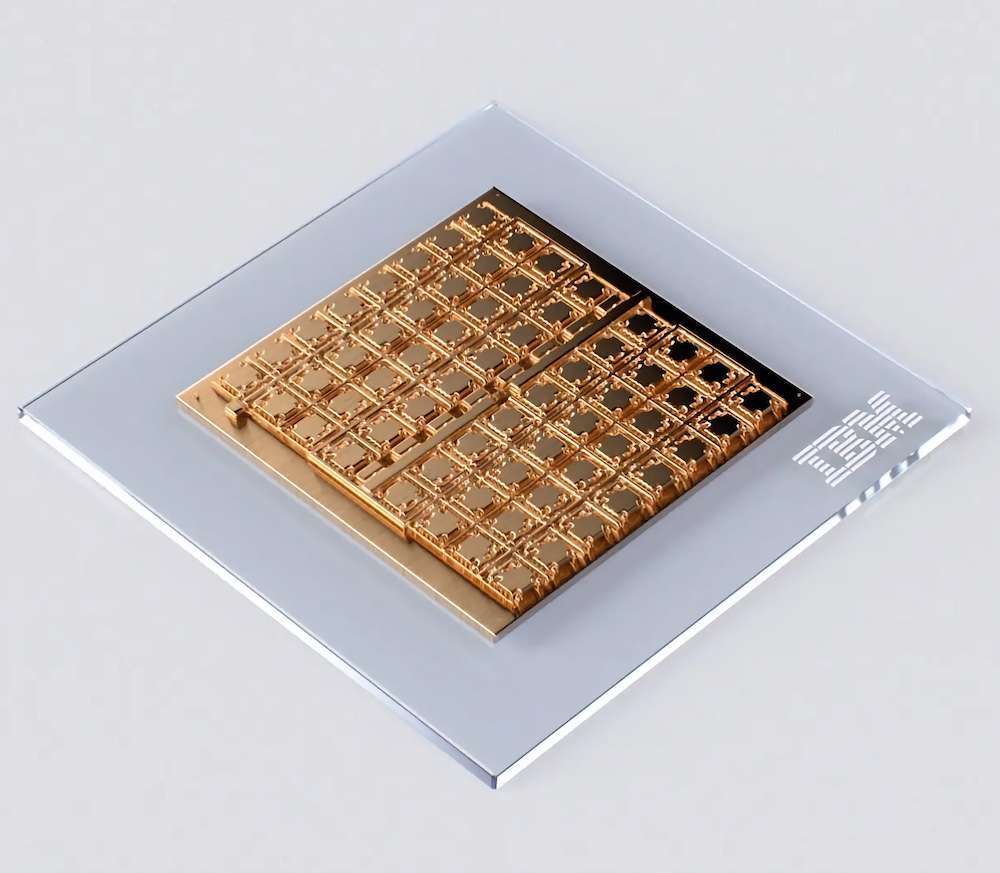IBM Research has announced an innovative analogue AI chip that can perform high-performance, high-accuracy deep neural network (DNN) computations. The paper, published in Nature Electronics, marks a major step forward in achieving high-performance artificial intelligence (AI) computing while significantly reducing energy consumption. The conventional way of running deep neural networks on traditional digital computing architectures (DNCs) has several drawbacks. These DNCs require constant data transfer between the memory and processing unit, which can slow down and reduce energy efficiency.
To address the efficient deep learning issues, IBM Research developed an analogue AI approach that mimics how neural networks work in a biological brain. This approach is based on the storage of synaptic weights using nano-scale, phase-change memory devices, also known as PCM. PCM devices change their conductance based on electrical pulses, allowing for a continuous flow of values for the synaptic weights. The analogue method reduces the need for over-transmission of data, as the computations are directly performed in the memory, resulting in improved performance.
IBM Research’s flagship chip is a state-of-the-art analogue AI solution that consists of 64 in-memory analog compute cores. Each core includes a cross-bar array of the synaptic unit cells along with compact analogue-to-digital converters, allowing for a smooth transition between the analogue domain and the digital domain. The digital processing units inside each core also manage nonlinear neuron activation functions as well as scaling operations. The chip also includes a globally distributed digital processing unit as well as digital communication pathways to facilitate interconnectivity.
Efficient Deep Learning Analog AI Chip
The research team was able to demonstrate the chip’s capabilities by achieving 92.81 per cent accuracy on the image dataset (CIFAR-10) – an unprecedented level of accuracy for an analogue AI chip. The throughput per area (GOPS) of the chip compared favourably to earlier in-memory computing (IoC) chips, demonstrating its superior compute efficiency.
The innovative chip’s energy-efficient design combined with its superior performance makes it a game-changer in the world of AI hardware. The unique architecture of the analogue AI chip and its impressive capabilities pave the way for a future where high-performance, energy-efficient AI computing is available for a wide variety of applications. IBM Research’s breakthrough marks a milestone that will catalyse the development of cutting-edge AI technologies for decades to come.





